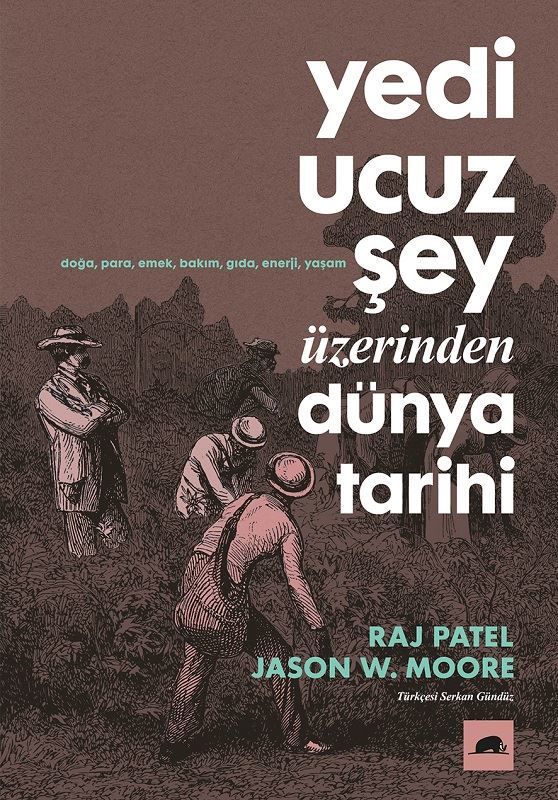
World History Through Seven Cheap Things
This work, which can be considered as the anatomy of half a millennium of colonial capitalism, traces how capitalism controls the relations between people and the web of life by cheapening nature, money, labor, care, food, energy and life, which we mostly ignore, probably because it is obvious.
An original critique of neoliberal economics that addresses today's crises, examining how nature-society, male-female duality, colonialism, racism, indigenous struggles, wars, crises and rebellions are related to these seven cheap things and each other, in the process extending from the production of the first capitalist product, sugar, to the expansion of capitalist borders. World History Through Seven Cheap Things is an eye-opening account of how we got to where we are today and how we must move forward towards a more just, sustainable civilization.
It's easier for most people to imagine the end of the planet than the end of capitalism
“Let's talk about what we mean by cheapness: It is a set of strategies that manage the relations between capitalism and the web of life by temporarily resolving the crises of capitalism. Although cheap is not the same as low cost, it is effective in reducing costs. Cheap is a strategy, a practice, a violence that mobilizes any form of work, human and animal, botanical and geological, for the minimum possible cost. “We use cheap to talk about the process by which capitalism transforms these unnamed life-making relations into cycles of production and consumption, and these relations are realized at as low prices as possible.”
(From the Promotional Bulletin)
Dough Type: 2nd Dough
Size: 15 x 21.5
First Print Year: 2019
Number of Printings: 1st Edition


